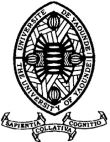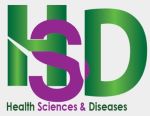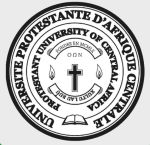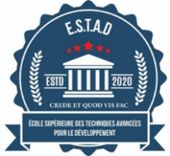Thrombose Intracardiaque : Aspects Épidémiologiques, Cliniques, Echocardiographiques, Thérapeutiques et Évolutifs à Abidjan
DOI :
https://doi.org/10.5281/hra.v2i4.5458Mots-clés :
Thrombus intracardiaque, échographie transthoracique, complications thromboemboliquesRésumé
RÉSUMÉ
Introduction. La thrombose intracardiaque est la formation d'un caillot sanguin au niveau d'une ou de plusieurs des cavités cardiaques. L’objectif de notre étude était de décrire les caractéristiques épidémiologiques, échocardiographiques, les aspects thérapeutiques et évolutifs des thromboses intracardiaques à l’institut de cardiologie d’Abidjan. Méthodologie. Il s’agissait d’une étude rétrospective à visée descriptive sur une période de 3 ans allant du 1er janvier 2019 au 31 décembre 2022 et portant sur tous les patients âgés d’au moins 18 ans et hospitalisés pour état de thrombose intracardiaque confirmé par une échographie-Doppler cardiaque au service de médecine de l’institut de cardiologie d’Abidjan sur la thrombose intracardiaque. Résultats. Notre échantillon était constitué de 66 patients soit une prévalence hospitalière de 1.58 % avec une incidence de 22 cas par an. L’âge moyen des patients était de 49 ans pour un sex-ratio H/F de 1,9. La cardiomyopathie dilatée était la cardiopathie la plus retrouvée (74 %). On notait une prédominance de la thrombose au niveau du ventricule gauche (69.70 %). Le traitement anticoagulant a été administré chez 66,6% des patients. La durée d’hospitalisation moyenne était de 6.4 jours. La complication la plus retrouvée était l’embolie pulmonaire (52.38%). L’évolution en cours d’hospitalisation était favorable dans 86.40 % des cas. La mortalité hospitalière était de 13.60 %. Conclusion. La thrombose intracardiaque reste une pathologie rare mais grave, avec une prévalence hospitalière significative à l'institut de cardiologie d'Abidjan. Le traitement anticoagulant a été largement utilisé dans la prise en charge de ces patients, bien que des complications comme l'embolie pulmonaire restent fréquentes.
ABSTRACT
Introduction. Intracardiac thrombosis is the formation of a blood clot in one or more of the heart's chambers. The aim of our study was to describe the epidemiological, echocardiographic, therapeutic, and evolutionary characteristics of intracardiac thromboses at the Cardiology Institute of Abidjan. Methodology. This was a retrospective descriptive study over a period of 3 years from January 1, 2019, to December 31, 2022, including all patients aged at least 18 years and hospitalized for intracardiac thrombosis confirmed by cardiac Doppler ultrasound at the Cardiology Institute of Abidjan. Results. Our sample consisted of 66 patients, with a hospital prevalence of 1.58% and a n annual incidence of 22 cases. The average age of the patients was 49 years with a male-to-female ratio of 1.9. Dilated cardiomyopathy was the most common cardiac disease (74%). There was a predominance of thrombosis in the left ventricle (69.70%). Anticoagulant therapy was administered to 66.6% of patients. The average length of hospital stay was 6.4 days. The most common complication was pulmonary embolism (52.38%). The in-hospital evolution was favorable in 86.40% of cases. Hospital mortality was 13.60%. Conclusion. Intracardiac thrombosis remains a rare but serious condition, with a significant hospital prevalence at the Cardiology Institute of Abidjan. Anticoagulant therapy was widely used in the management of these patients, although complications such as pulmonary embolism remain common.
Références
Ralamboson SA, Miandrisoa RM, Riel A, Ravaoavy H, Rakotomanga D, Rajomarison M, et al. Epidemiological clinical and ultrasound aspects of cardiac intracavitary thrombosis seen in the Hospital Center of Soavinandriana. Rev. méd. Madag. 2011;1(3):58-62
Baldé E.Y, Baldem.D, Beavogui M, Barry IS, Kimso O, Touré S et al.Thrombus intracavitaire : aspects épidémiologique, clinique, échographique et évolutif au service de cardiologie de l’Hôpital National Ignace Deen de Conakry. Cardiologie tropicale.2014; volume-n-140-jan-fev-mar. p.59.
Tagueniti J, Samih A, Raissouni M, Benyass a. Thrombus cardiaques: diagnostic positif et étiologique. Centre de cardiologie, Hôpital militaire d’instruction Mohammed V, Rabat. Maroc.408-2019-64.pdf
Salah RB, Frikha F, Karima S, Damak C, Jallouli M, Mona S, et al. Les thromboses veineuses profondes du sujet âgé: à propos de 102 cas. Rev Médecine Interne. déc 2016;37: A149‑50.
Kawtar E.B. Thrombose intracardiaque: aspects épidémiologiques, diagnostiques, thérapeutiques et évolutifs à l’hôpital de la paix de Ziguinchor. 2022. Disponible sur http://rivieresdusud.uasz.sn/xmlui/handle/123456789/1438
McCarthy CP, Murphy S, Venkateswaran RV, Singh A, Chang LL, Joice MG, et al. Left Ventricular Thrombus. J Am Coll Cardiol. 23 avr 2019;73(15):2007‑9.
Deux JF, Mayer J, Colombier D, Guendouz S, Lapeyre M, Lim P, et al. Masses et thrombus. In: Imagerie Cardiaque: Scanner et IRM. Elsevier; 2011. p. 205‑30.
Bulluck H, Chan MHH, Paradies V, Yellon RL, Ho HH, Chan MY, et al. Incidence and predictors of left ventricular thrombus by cardiovascular magnetic resonance in acute ST-segment elevation myocardial infarction treated by primary percutaneous coronary intervention: a meta-analysis. J Cardiovasc Magn Reson. 8 nov 2018;20:72.
Hermann Y, Roland N, Arnaud E, Jean Baptiste A, Antonin S, Michel A,et al. Les masses cardiaques. Le Journal Africain du Thorax et des Vaisseaux 2014 ; Volume 4 : N° 8 Page 273.
Delewi R, Nijveldt R, Hirsch A, Marcu CB, Robbers L, Hassell M, et al. Left ventricular thrombus formation after acute myocardial infarction as assessed by cardiovascular magnetic resonance imaging. Eur J Radiol. déc 2012;81(12):3900‑4.
Iqbal H, Straw S, Craven TP, Stirling K, Wheatcroft SB, Witte KK. Direct oral anticoagulants compared to vitamin K antagonist for the management of left ventricular thrombus. ESC Heart Fail. 25 juin 2020;7(5):2032‑41.
Burns KE, McLaren A. Catheter-Related Right Atrial Thrombus and Pulmonary Embolism: A Case Report and Systematic Review of the Literature. Can Respir J. 2009;16(5):163‑5.
Chao TF, Lip GYH, Liu CJ, Lin YJ, Chang SL, Lo LW, et al. Relationship of Aging and Incident Comorbidities to Stroke Risk in Patients With Atrial Fibrillation. J Am Coll Cardiol. janv 2018;71(2):122‑32.
Téléchargements
Publié-e
Comment citer
Numéro
Rubrique
Licence
Authors who publish with this journal agree to the following terms:
- Authors retain copyright and grant the journal right of first publication with the work simultaneously licensed under a Creative Commons Attribution License CC BY-NC-ND 4.0 that allows others to share the work with an acknowledgement of the work's authorship and initial publication in this journal.
- Authors are able to enter into separate, additional contractual arrangements for the non-exclusive distribution of the journal's published version of the work (e.g., post it to an institutional repository or publish it in a book), with an acknowledgement of its initial publication in this journal.
- Authors are permitted and encouraged to post their work online (e.g., in institutional repositories or on their website) prior to and during the submission process, as it can lead to productive exchanges, as well as earlier and greater citation of published work










